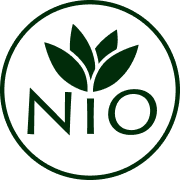Are you looking for the best loose leaf tea for sleep? In this article, we’re going to go over a few teas that can be great to drink before going to bed, either in the late afternoon or evening. These teas are all low in caffeine, so you can get plenty of the flavor and health benefits you like from green tea, without the caffeine.
First, let’s start off by saying that all true teas contain some level of caffeine. Drinks like chamomile and peppermint are not actually teas because they do not come from the tea plant. The tea plant naturally produces caffeine as a defense mechanism to protect itself from insects. As a result, virtually all teas will have caffeine in them, although some are incredibly low in caffeine. These different types of japanese tea for sleep can be a good choice for later on in the day, and even at night.
Our top 7 best loose leaf tea for sleep

#1 Bancha Masudaen
The bancha masudaen is one of the best loose leaf tea for sleep. This tea is made from the older, more mature leaves of the tea plant. These older leaves are lower in caffeine but higher in minerals. It is common to drink bancha after a meal and it is thought to help with digestion. This makes it the perfect tea to enjoy after a late lunch or an early dinner! The flavor is more mild compared to sencha, with these warm wood and cereal notes.

#2 Kuki Hojicha
The kuki hojicha is another among the best loose leaf tea for sleep. This tea is both a stem tea and a roasted tea, making the caffeine content extremely low. Even though the caffeine content is low, the flavor of this tea is very powerful. Mr. Issin roasts these stems quite heavily, and it really comes out in the flavor. The kuki hojicha shows flavors of black coffee and dark chocolate, which are really enjoyable particularly on a cold day.

#3 Genmaicha Hagiricha
The third tea that comes to mind when you think about the best loose leaf tea for sleep is the genmaicha hagiricha. Genmaicha is made by mixing toasted rice with tea leaves, so it has far less caffeine than a normal green tea. The leaves used are also usually the older, more mature leaves of the tea plant, so they contain less caffeine. The toasted rice imparts a warm cereal flavor onto the tea that is really quite soothing. Enjoy this tea anytime of day, but particularly in the afternoon or evening!

#4 Noike Hojicha
The Noike Hojicha is one of our most loved japanese tea for sleep. This roasted tea is made by a talented farmer named Mr. Noike in a small town outside of Kyoto. Mr. Noike grows his teas inside a pine forest, so they receive partial shading throughout the day. This makes the teas slightly sweeter, and the Noike Hojicha is a good example of that. This tea has these pleasant caramel and milk chocolate notes that are the perfect compliment to a cozy evening.

#5 Kukicha Osada
Another good japanese tea for sleep is the kukicha osada. This is a low caffeine stem tea from the organic village of Isagawa in Shizuoka. When we met with the Osada family, they took us up in the mountains to see some of their tea fields. Even though they are a slightly larger company, they still maintain relationships with a lot of smaller farmers that grow tea without pesticides up in the mountains of Shizuoka. They have made an agreement not to use pesticides or chemicals on their tea fields, which is why they refer to this area as the organic village.

#6 Hojicha Kawabataen
The final hojicha on our list is the hojicha kawabataen. Like the other two hojicha teas, this is a great japanese tea for sleep. This tea comes from Mr. Kawabata in Shizuoka. The tea takes on some of these pleasant woody notes with a hint of caramel. Let this tea soothe you into a nice sleepy evening and enjoy a good book while you drink it!

#7 Kukicha Sakamoto
Finally, we have one more japanese tea for sleep from Mr. Sakamoto and that is the Sakamoto kukicha. This tea is made from the same plants used to make Gyokuro, but it is made from mostly the stems. This lowers the caffeine content significantly, but it still does contain some shaded leaves. For this reason, the kukicha sakamoto is positioned last on our list, because it likely has the most caffeine. It still might be suitable for people who are not very sensitive to caffeine and it has a very pleasant taste to it, with floral and fruity tasting notes.
What are the best loose leaf tea types for sleep?
#1 Herbal tea: chamomile, ginger and peppermint
These are technically not teas but they are often included in the best loose leaf tea for sleep lists so we thought we would mention them briefly. These drinks will not induce sleep, but if you find them relaxing and enjoy the flavor, there is something inherently soothing about a warming drink right before bed so these can be helpful.
#2 White tea that contains low caffeine
Contrary to popular belief, white teas actually contain quite a bit of caffeine. White tea gets its name from the silvery hairs or “trichomes” that form on the buds of the tea plant. These buds are used in a lot of the premium white tea blends and they can be incredibly high in caffeine. If you are using a white tea as your go-to tea before bed, make sure it is made mostly from the older leaves of the tea plant, like a shou mei for example.
#3 Green tea that contains low caffeine
Most Japanese green teas are relatively high in caffeine, so if you are looking for the best loose leaf tea for sleep, it is important that you select a tea from the list above. These teas are either made from older leaves, roasted leaves or stems, so the caffeine content is greatly reduced. Try switching out a high caffeine drink for a few of these delicious teas and you should be sleeping better in no time!
What are the different types of Japanese tea for sleep?

Hojicha

Bancha
Bancha is quite an inexpensive tea, and it’s actually the second most common type of tea in Japan after sencha. This tea is made from the older, thicker leaves on the tea plant. The flavor tends to play more on these warm wood, cereal and popcorn notes. Because of the unique and more subtle taste of this tea, we think that it makes for a good “snacking tea” meaning it pairs well with afternoon snacks like popcorn and mixed nuts. The tea is sometimes drunk in Japan after a meal, to help aid in digestion. This tea makes a great addition to your evening routine and it is one of the most affordable types of Japanese green tea. It costs just $16 for 100 grams of this tea, which is enough to make 100 cups of tea, as you can reuse the leaves 5 times.

Kukicha
Kukicha is also another great tea you can drink before bed. This tea is made from the stems of the tea plant, which give the tea a pleasant straw or late summer grass flavor. The addition of the stems can make the overall flavor of the tea a bit more milder. For example, a tea like Karigane is made from the stems and leaves of the same plants used to make Gyokuro. While Gyokuro would normally have this powerful sweet and savory flavor that a lot of tea drinkers fine too intense, the stems can create more of a milder flavor. The Karigane gives you a more neutral taste, with notes of cucumber, canteloupe melon and straw. While Karigane is on the more expensive side, most Kukicha teas are lower in price. The caffeine content in Kukicha is also much lower than that of leaf teas, containing around 18mg of caffeine or less than a quarter of a small cup of coffee. Depending on how sensitive you are to caffeine, you can definitely enjoy this tea at night time, or even before bed. Stem teas can even be roasted to form a Kuki hojicha, which will be even lower in caffeine. The Kuki Hojicha from Mr. Issin takes on an even darker flavor profile, similar to that of black coffee, minus the caffeine.

Genmaicha
The final Japanese green tea to have before bed is Genmaicha. This is a tea made by combining toasted rice with tea leaves. Originally, this started as a way to conserve tea leaves during times of economic hardship, but it eventually became its own popular form of green tea. Because there is no caffeine in toasted rice, it brings the caffeine content of the tea down, allowing you to enjoy this tea late into the evening. This tea has these warm cereal notes that you may find nice and soothing right before bed. The tea has a nice sweetness to it with some light grassy notes from the tea leaves. You can also get the genmai or toasted rice separately and add it to the tea leaves yourself.
5 tips to improve sleep quality
1. Avoid caffeine 6 hours before sleep
This is a great general rule to follow. Even if you find the best loose leaf tea for sleep, you still shouldn’t drink a ton of it right before bed. Although the caffeine content in these teas is much lower than an average green tea, it can still add up overtime. Depending on how sensitive you are to caffeine and when you plan on going to bed, you may want to stop your caffeine intake at between 4-5pm just to be safe. Even drinking high caffeine tea or coffee in the early afternoon can keep you up at night.
2. Drink herbal teas at least 30 minutes before sleep
Although they are not technically teas, herbal infusions or “tisanes” as they are sometimes called do have the benefit of being caffeine free (with the exception of yerba mate and guayusa). Tisanes like chamomile, ginger and peppermint gan be a great part of your before bed routine. In addition to the best loose leaf tea for sleep, you will also want a warm, tasty beverage to drink before bed.
3. Avoid drinking too much tea or other liquids before sleep
Even if the best loose leaf tea for sleep is free of caffeine, it is still a liquid which can be almost as bad when it comes to keeping you up at night. Avoid unnecessary trips to the bathroom in the middle of the night by cutting off your liquid intake an hour or two before bed.
Our final words about the best loose leaf tea for sleep
So there you have it, 7 types of great japanese tea for sleep. I hope you found this article helpful when it comes to picking out your next evening tea. If you have any questions, please feel free to leave them in the comments section below. I have to go take a nap now, I’ve been drinking lots of hojicha!




